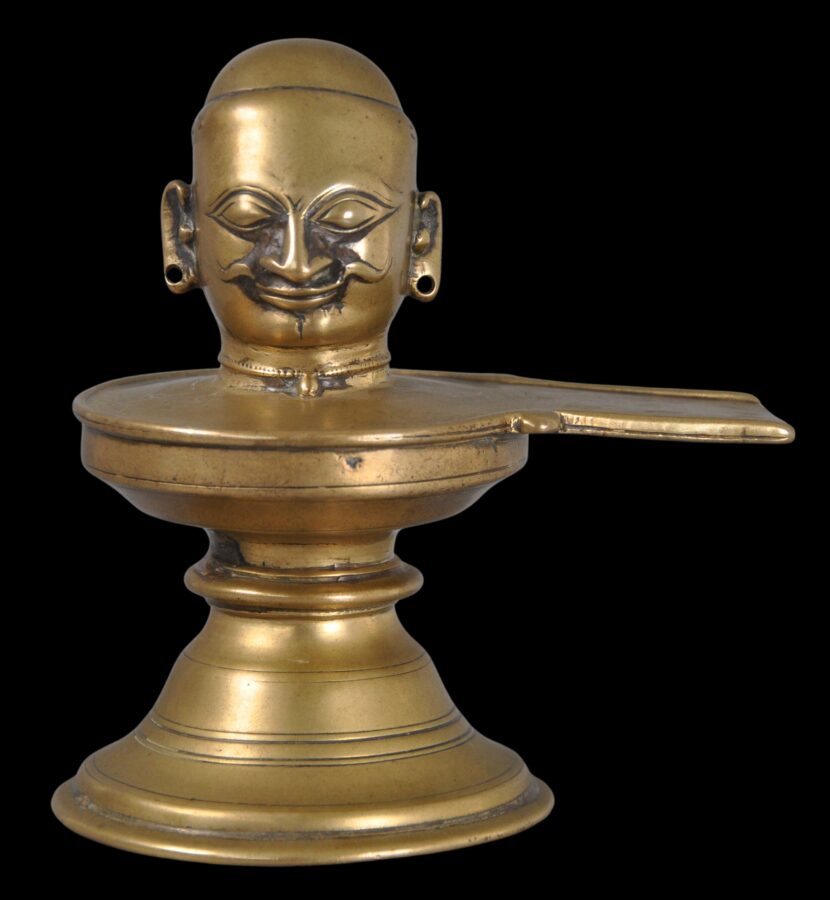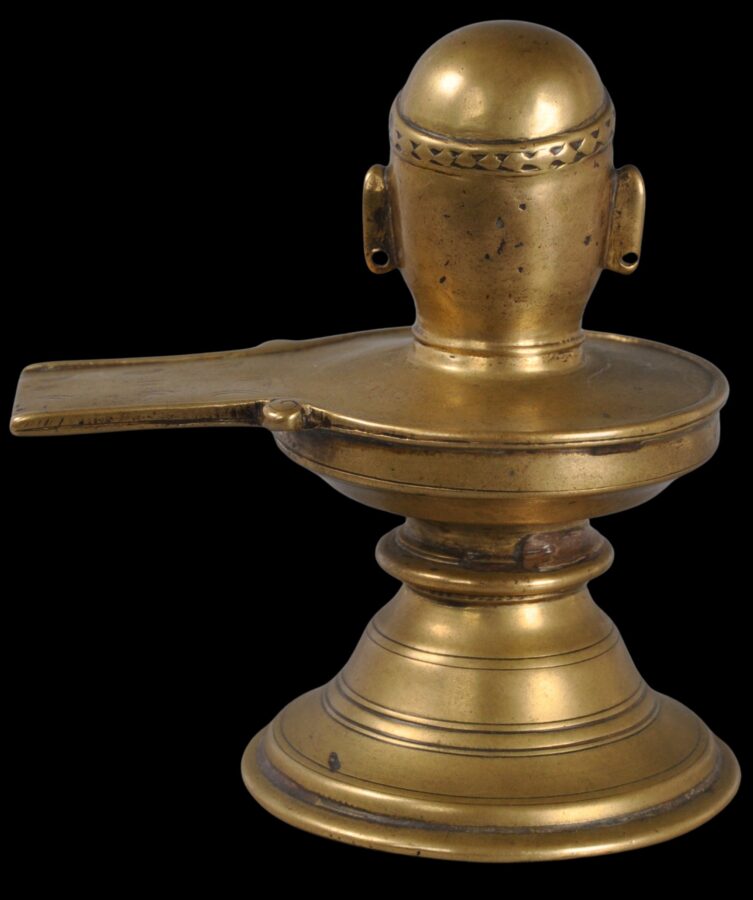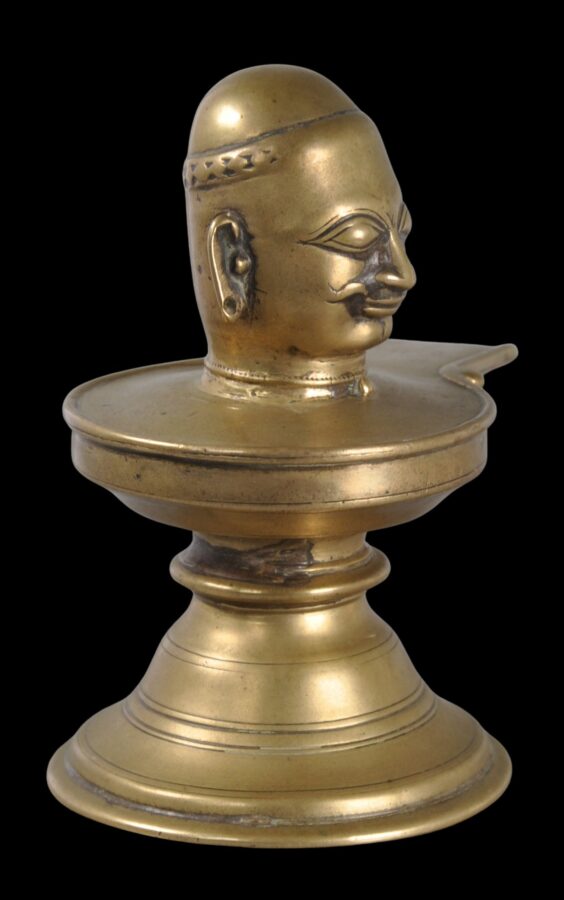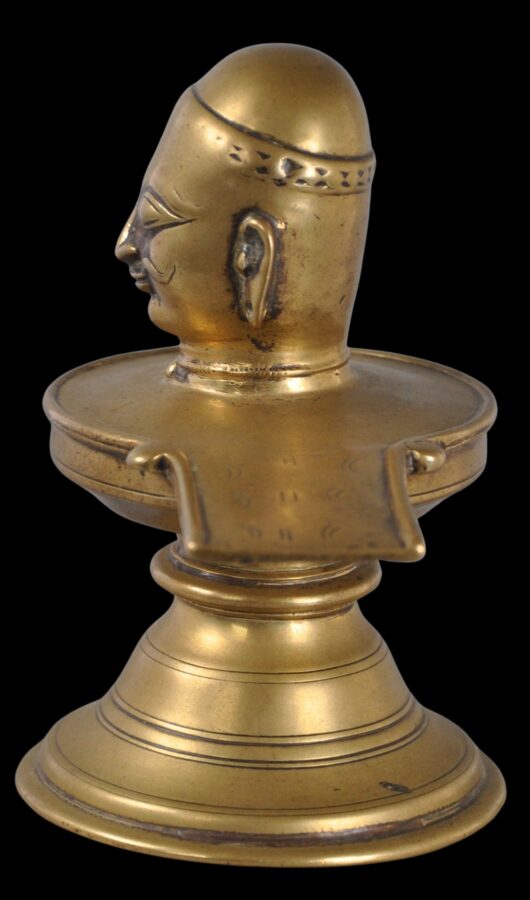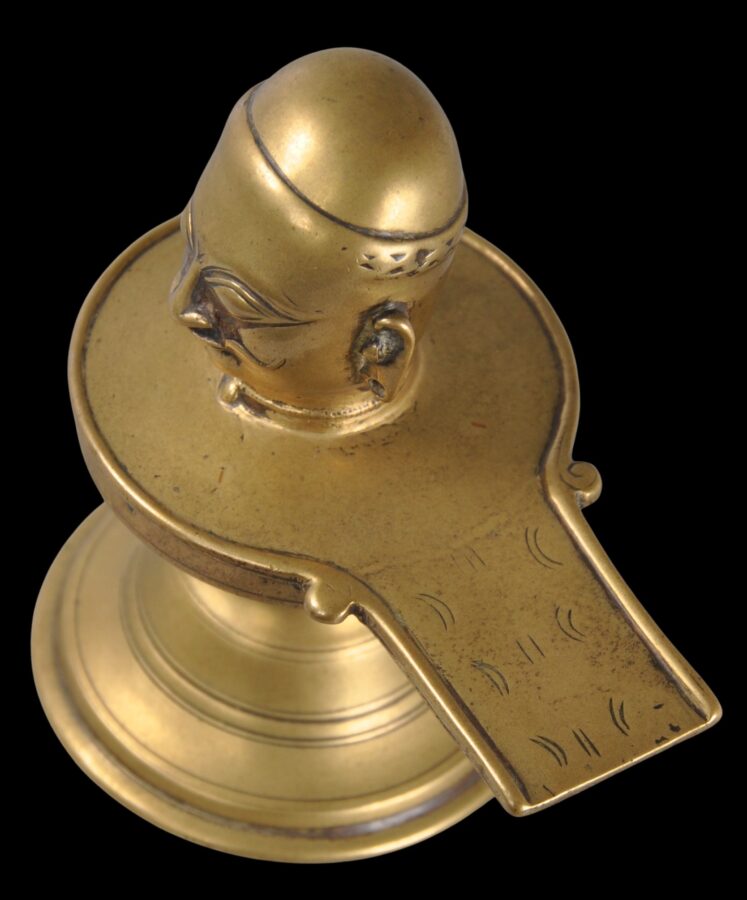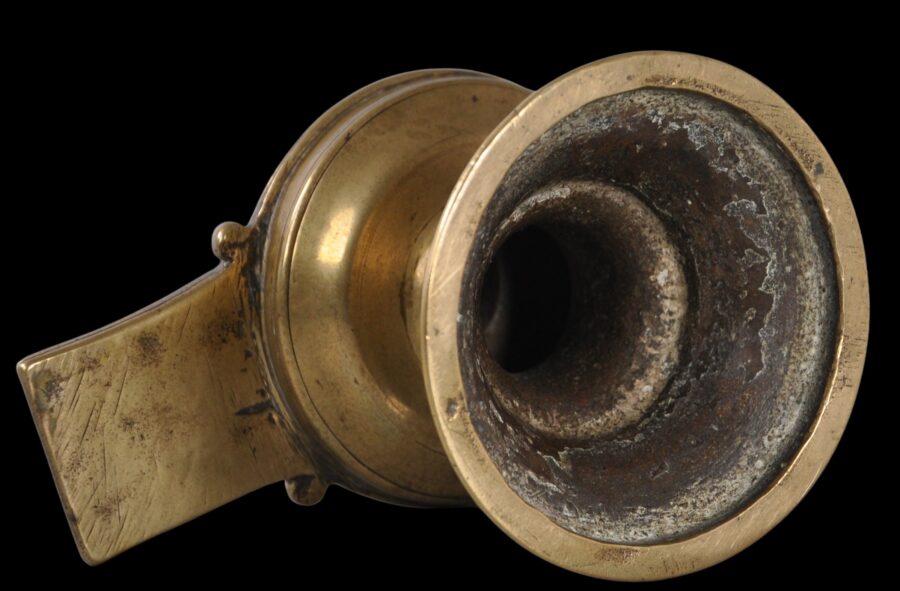This elegant Shivalingam with a cast brass lingam and yoni base where the lingam is in the form of Shiva’s head has much ritual (puja) wear and dates to the 18th century. A lingam decorated with the face of Shiva is known as an Ekamukhalinga.
Shivalingams cast with a Shiva face a relatively rare.
Shiva’s face is depicted with a moustache, a plain turban over his head, pierced ears, and a necklace with a rudraksha seed pendant.
The yoni platform is beautifully sculptured. It has a baluster-form stem, and a flared base. The ‘spout’ has been engraved with wavy marks to suggest the direction of flow.
Lingams are used in worship in temples and smaller shrines, including household shrines. The lingam is seen as a symbol of the energy and potential of Shiva himself.
The lingam is often represented rising from the yoni as is the case here, the female symbol, the form of which is based on the female genitalia.
The physical union of a lingam with a yoni represents the indivisible two-in-oneness of male and female. Neither representations have any overt sexual meaning however. Indeed, the two are more symbols of power, fertility and prosperity than anything that is sexually charged. Puja worship of a shivalingam typically involves pouring water, milk and ghee offerings over the lingam and the yoni acts as the catchment receptacle and the conduit from which these sacred offerings can be collected and distributed to those in attendance.
This is a splendid piece with much obvious age. All contours and detailing have been softened and rounded by handling, age and use.
References
Aryan, S. & B.N. Ayran, The Mukhalingas: Transcendental Images of Shiva, Rekha Prakashan, 2023.
Bala Krishnan, U.R., & M.S. Kumar, Dance of the Peacock: Jewellery Traditions of India, India Book House Ltd, 1999.
Blurton, T.R., Hindu Art, The British Museum Press, 1992.
Untracht, O., Traditional Jewelry of India, Thames & Hudson, 1997.


